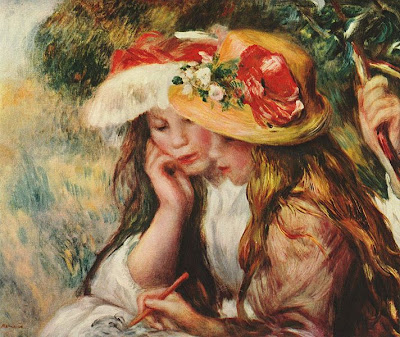HENRY
VI TRILOGY
Shakespeare's
Globe
27.07.13
Not
a real trilogy, of course, but this pruned and fast-paced sequence
makes a fascinating tale of wars, rivalries and rebellions, the Wars
of the Roses seen through the young Shakespeare's eyes.
Each
play is set against two metal towers – worthy scaffolds, with a
wooden throne and dais between. Against the frons scenae of
Shakespeare's Globe the effect is somewhat lost – we should be
seeing them towering over the battlefields at Towton or Tewkesbury –
but they are effectively used to add height and excitement, and even
to augment the already deafening percussion which underscores the
fight scenes.
This
is not a small company, but almost everyone plays many parts and dies
a thousand deaths. And, as in The Dresser, everyone is roped in to
beat the drum: rebellious Jack Cade cheek by jowl with his king.
Roger
Evans' Cade, and his lookalike Suffolk, are splendidly brought to
life, crowd-pleasing and rabble-rousing. Also outstanding are Brendan
O'Hea [last season's Fluellen] as York, and later an outrageously
effete pantomime King of France, and Simon Harrison as the crookback
Gloucester, prowling and sneering like Sher without the crutches.
Beatriz
Romilly's Pucelle – fierce and
impulsive – seems very much at home in this macho world; in Part
Two she is a regal Eleanor; in Part Three an aloof Lady Grey. Mary
Doherty, whose lovely voice accompanies the funeral procession of the
victor of Agincourt, becomes in Part Two the powerful Queen Margaret.
The
succession of coups and slaughters comes over as somewhat crude, with
all the nobles little better than gangsters or despots. But there are
tender moments, too, many of them from Graham Butler's bookish,
unworldly Henry. He sits reading while the action goes on around him,
he dreams, on his molehill, of life as a simple shepherd. And after
all the double-dealing and deception of Part Three, and its bloody
battles, he meets his death in the Tower, at the hands of Richard. In
a chilling moment,
the assassin struggles to free himself from under the corpse of his
butchered king, who, in his dying breath, imagines bloodshed yet to
come:
… for
much more slaughter after this. /
O God forgiue my sinnes, and pardon thee.
This
is early, unsophisticated stuff, with frequent borrowings, and more
than a whiff of the mystery play. More than once we need a lesson on the complex genealogy of the royal line. But this enterprising, and
exciting, version is a welcome look at the history, both national
and literary, which leads us to Richard III and Bosworth Field.




















